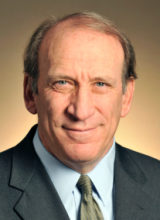Hillsboro, Oregon, Ready to Invest in Fiber for Residents, Businesses
Hillsboro, Oregon, has studied the possibility of investing in high-quality fiber connectivity for residents and businesses since 2014. After considering the pros and cons, this northwest city of 105,000 has decided to move ahead, with spring 2019 as a target launch date of its own Internet access service.
Communications Utility and Beyond
In January, the City Council approved establishing a communications utility, creating a communications fund, and taking the necessary steps to develop a dig once policy in the city’s code. Elected officials had not yet decided if the community would pursue a city-wide network, but wanted to create an environment that would offer future options and encourage private sector partners to invest in Hillsboro.
The city already owns fiber optic resources that it uses for municipal facilities, schools, traffic signals, and other purposes. They plan to use that network as a foundation to expand in order to bring better connectivity throughout the community. With a wider network, Hillsboro hopes to adopt public Wi-Fi, better public safety notifications, and applications for smart-meters for utility services as well as real-time parking and traffic updates.
Keeping it Affordable for All Segments
Hillsboro plans to offer gigabit connectivity at around $50 per month but hopes to provide the same symmetrical service to lower-income households at a lower rate. In addition to equitable access for all income levels in Hillsboro, the city wants to ensure that students have the ability to compete.
“For our students, for our businesses, and for our entire community, we are moving forward now to expand the City’s fiber network to include Internet service,” said Hillsboro Mayor Steve Callaway. “We want to ensure affordable, equitable high-speed access to keep Hillsboro competitive with cities around the world."
The city wants to ensure that network neutrality protections remain in effect in the community for individuals and businesses. Encouraging entrepreneurs and making high-quality access with good customer service affordable for all subscribers are more goals they intend to pursue.
Incremental




